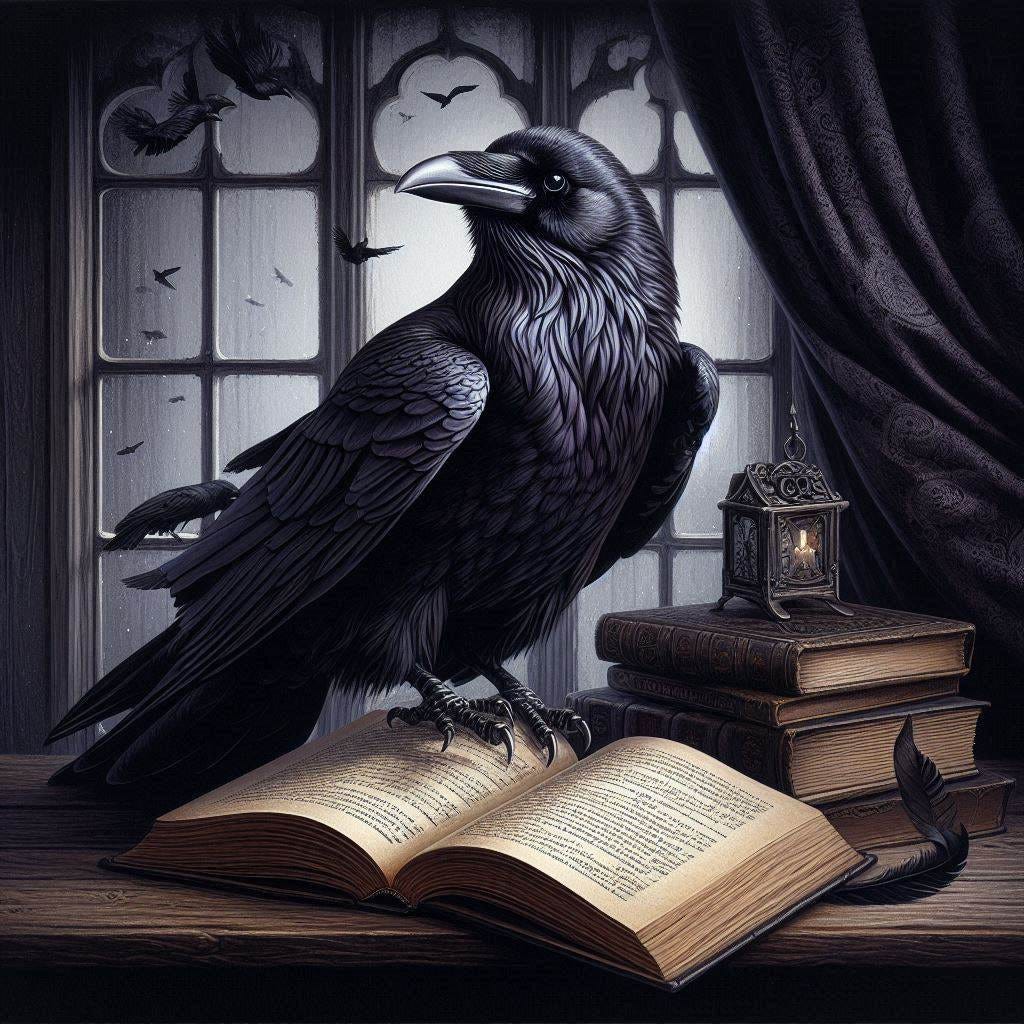The Mysteries of History (January 29 Edition)
Nevermore Quoth, Bleeding Kansas, and Dr. Strangelove
“Those who cannot remember the past are condemned to repeat it.” — Spanish-American philosopher George Santayana, 1905
1845 — Poe’s “The Raven”
image generated using Bing Image Creator
180 years ago today, Edgar Allan Poe’s The Raven first saw the light of day — or, more appropriately, the darkness of night, as it opens with the words, “Once upon a midnight dreary.” It is one of the few poems from the 19th century that is still widely known (rather than just among poetry buffs),
The Raven is also probably the only poem for which a football team is named: Poe, who lived much of his life in Baltimore, and died there, would doubtless have been surprised that his hometown would later have a professional football team named for his most famous poem.
Questions: Was "The Raven" immediately accepted for publication? When did Poe die, and what were the circumstances surrounding his death? Had Poe ever been a member of the military? What genre of literature is Poe most known for? Did he ever attempt to write "light," in a humorous vein and if so, what became of it?1861 — Kansas Becomes A State
public domain image from wikimedia commons
On this date in 1861, Kansas became the 34th member of the United States. It entered as a “Free State,” after much interference from slavery-espousing Missourians (known as “Border Ruffians”) from across the eastern boundary of Kansas. The violent clashes between those wanting Kansas to become a slave State (such as William “Bloody Bill” Quantrill) and those desiring Kansas to become a non-slavery, or “Free”, State (such as John Brown and his sons), earned the State the nickname “Bleeding Kansas.” Kansas was thus on the “bleeding edge” of the Civil War.
Questions: How close was the vote over whether Kansas would become a slave or free State? Which States border Kansas? Where did John Brown go after leaving Kansas, and how did he die? What is Kansas most known for today?1964 — Dr. Strangelove
public domain image from wikimedia commons
Stanley Kubrick’s black comedy Dr. Strangelove or: How I Learned to Stop Worrying and Love the Bomb premiered on this date in 1964. It is about a rogue U.S. military officer who orders a preemptive nuclear attack on Russia and the response to the imminent chaos that would result if Russia is, indeed, bombed.
Questions: What prompted Kubrick to make this film? Did he write the script? Was Dr. Strangelove made primarily as entertainment, to make money, or to make a point? What effect did it have on people's attitudes towards nuclear war and nuclear weaponry? Did it contribute to geopolitical changes/improvements? Does Dr. Strangelove still influence people's thinking today?








